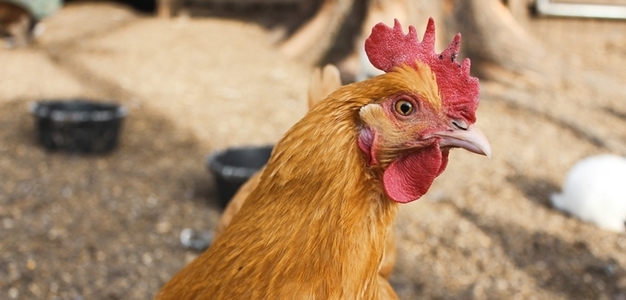The chicken-and-egg of mental health and shame

Mental Health Awareness Week this week raises the subject of shame and mental health.
As a counsellor, it got me to thinking: is it chicken and egg?
Are we ashamed to admit we're struggling, and therefore our mental health declines, or as our mental health declines do we develop that shame? What comes first?
The team at LionHeart have been busy practising what we preach - signing up to the national Time To Change mental health pledge and looking at what we as a team do to improve the support we offer each other and how we talk about mental health at work.
This is something that still surprises me. I have years of training and practising as a counsellor under my belt, and understand mental health conditions better than most - but I still find difficulty in talking about my own.
Most of us have, at the very least, times or days when we struggle with difficult thoughts and feelings.
I notice that I find it easy to talk about my positive experiences in life, but far more difficult to talk about any negative things that might be going on.
But this past weekend I had something of an 'Aha!' moment that has helped me understand in part why this is.
As a counsellor, I am required as part of my professional membership to attend regular CPD events. On Saturday, I gave up some of my time off to attend a workshop themed around the subject of 'Shame'. It's a topic that very often comes into my work with others and so, for me, both worthwhile and interesting to learn more about but it was not a topic that I had equated to a decline in mental health or mental health at work.
It turns out I was wrong.
I was enlightened as the trainer linked the work on shame from renowned psychologists to various mental health conditions, such as depression, anxiety, personality disorder and, at the other end of the scale, suicide.
What can start as discomfort or embarrassment can easily turn into a feeling of shame, and this affects out mental health. With ever increasing targets, appraisals and workloads it can be very easy to end up feeling you're not doing a good enough job, and this work-related stress can increase the risk of developing depression.
Think about how you react at work in some situations. Do you feel embarrassed as a result of asking something several times, or do you feel anxious if you get something wrong?
Which brings me back to my original chicken-and-egg thought: whether feeling ashamed of struggling makes our mental health decline, or whether mental health issues sparks within us a feeling of shame that we are not able to cope better?
One thing is for certain - with more than 1 in 4 people suffering from mental ill health, the chances are that someone you know or work with isn't feeling great today.
The first anti-shaming defence is to talk, and talk some more. The next time someone tells you the tell-tale line, "I'm fine," take a bit of time to find out more. Maybe remind them of what they do well, their achievements or contributions. You may be just the antidote they need.
- Find out more about signing your company up to the Time to Change mental health pledge
Joanne Tucker is one of the LionHeart BACP counsellors

